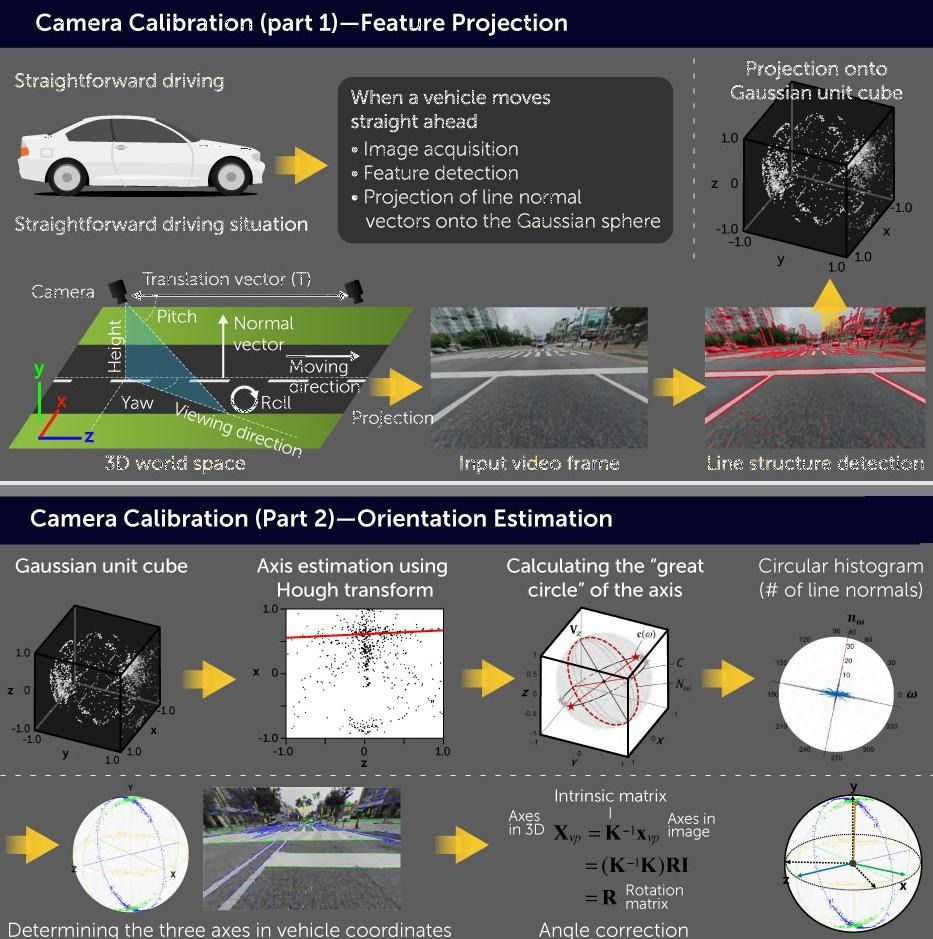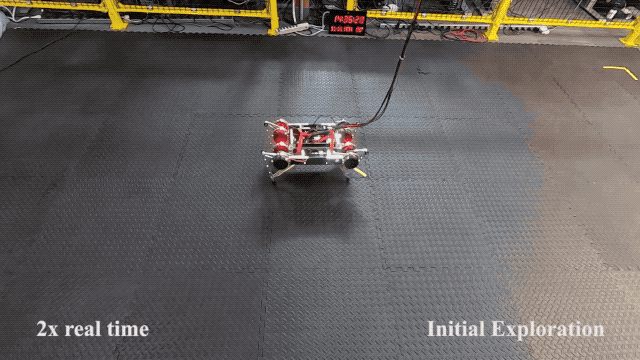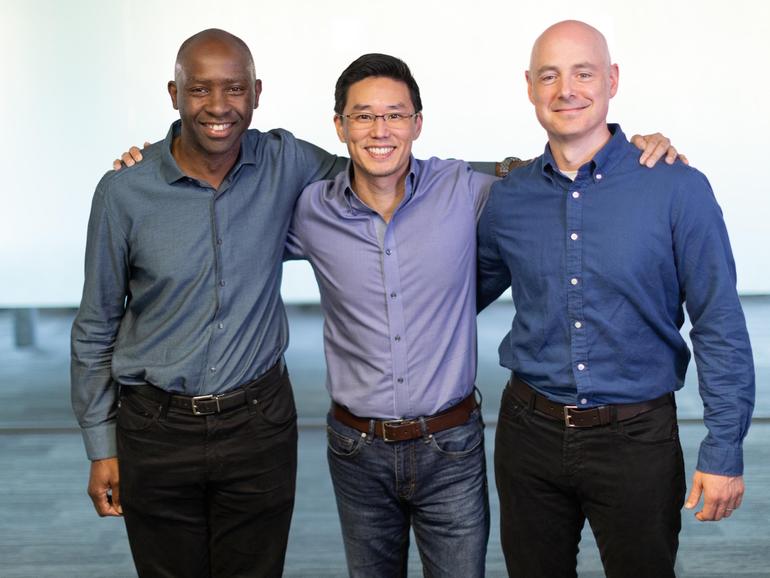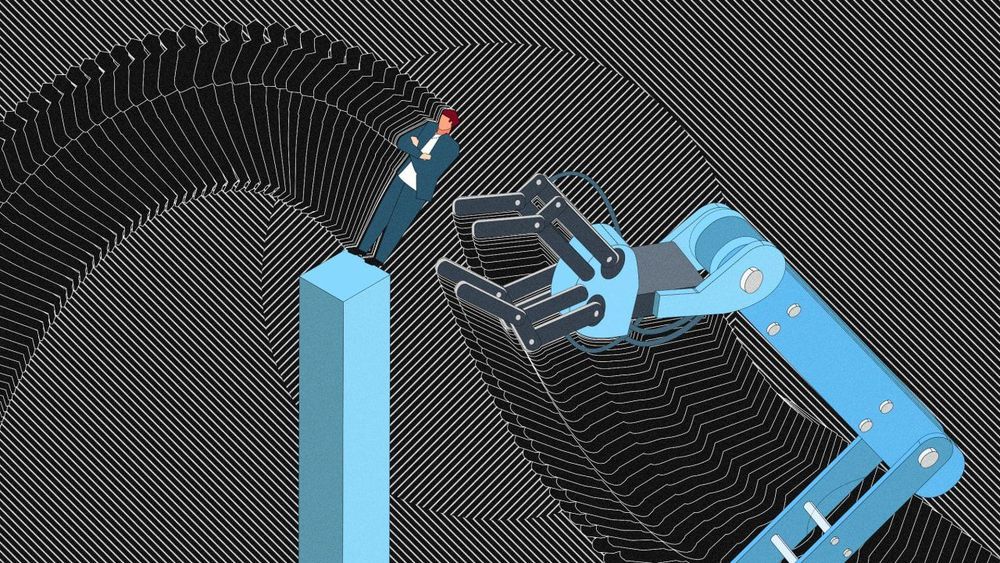The locusts have no king, and yet they all go forth in ranks, noted King Solomon some three thousand years ago. That a multitude of simple creatures could display coherent collective behavior without any leader caused his surprise and amazement, and it has continued to do so for much of our thinking over the following millennia. Caesar’s legions conquered Europe, Napoleon’s armies reached Moscow: We always think of a great commander telling the thoughtless multitudes what to do.
Statistical physics pioneered an opposite view. When a piece of iron is cooled down to a certain temperature (the Curie temperature), the majority of the atoms align their spins, thereby making it magnetic. No atomic general gives any commands; each atom communicates only with its neighbors, and yet there is an overall alignment. It shows us that local microscopic interactions as such can lead to dramatic global behavior, and this realization brought about a revolution in the understanding of swarm behavior.
Some hundred years ago, serious biologists still thought that the coordination of birds in a flock was reached by telepathy, and the synchronized light emission by fireflies in the Asiatic jungle was attributed to faulty observation by the observer. The introduction of physics concepts in biology has to a large extent resolved these puzzles. Flocks of birds are much more like the atoms in iron than they are like the armies of Napoleon, and the fireflies act much like a laser. Collective behavior in the world of living beings is after all not so different from that in the inanimate world.
The fusion of physics concepts and biological observations has proven fruitful for both sides, and the conceptual transfer worked in both directions. For centuries, physics concentrated on simple systems, since these were solvable by the available techniques. Scientists broke up a large system into many simple little ones, which could be handled. Putting them back together then described the large system. At the turn of the last century, Per Bak, a pioneer of the truly new physics of complexity, noted that “the laws of physics are simple, but nature is complex.” If the Big Bang initially produced an ideal gas of primordial particles, how could this eventually lead to the appearance of Per Bak? A living being is more than a set of molecules, and today we study systems in physics which refuse to be decomposed additively into little subsystems.
The understanding of collective behavior of animal societies can perhaps act as a first step in the search for an answer. Today we can simulate a flock of birds on a computer, allowing each bird to move freely, subject to only two social rules: Follow your neighbor, but don’t crowd him. Putting a large number of such simplistic birds on the computer then produces the behavior observed for flocks of real birds. A primitive way to achieve collective behavior is provided by commands of Caesar or Napoleon; a more subtle and more natural way is to allow a many component system to move subject to the simple clear social rules.
A still more dramatic form of collective behavior appears in insect societies. The whole now no longer consists of identical components. Evolution has found it preferable to have different components designed specifically to carry out particular tasks. In an ant colony, we have workers, nannies, soldiers, drones, and a queen. Each individual carries out specific tasks; it is dependent on the others in order to exist, it cannot survive alone. And no matter how good a worker ant is, it will never have children to whom it can pass on its capabilities. All descendants are produced by the queen and the drones. Charles Darwin’s survival of the fittest now takes on a new and unexpected form. It no longer applies to individuals, but rather to the entire collective system. Insect societies thus in a way precede the pattern of modern industrial societies, in which large firms employ different “species” of workers to carry out dedicated tasks. In most human societies, the caste status is not (yet) inherited, and caste transitions are possible. Hopefully, evolution will consider this as dominant.
In any case, human societies have led to one collective feature not paralleled on a comparable level by any animals: we have language. Only the existence of language allows the abstract thinking of humans; we can imagine and talk about the past and the future, the here and the elsewhere. It is probably this more than anything that has allowed humans to take over the entire earth.








